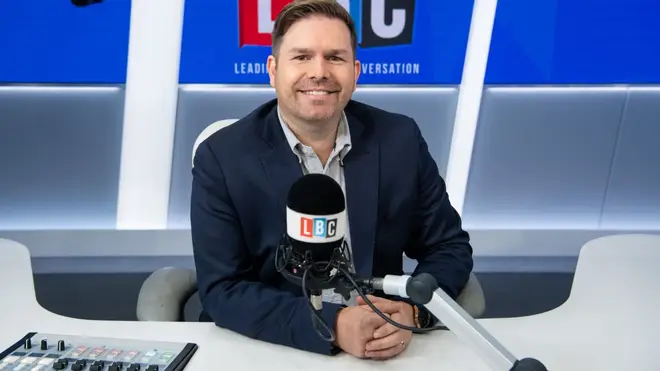
Nick Abbot 10pm - 1am
22 March 2022, 11:58

Inflation looks likely to reach 10 per cent, interest rates are going up again, a global energy crisis is forcing up the cost of gas and now the war in Ukraine is set to cause a financial ripple through the UK economy.
This is causing the cost of living to spiral out of control, with households seeing significant increases in their energy bills, food costs and prices at the petrol pumps.
Households on the lowest incomes and older people on low incomes will be amongst those hit hardest, as they are entering this crisis in an already precarious financial position, struggling to make ends meet after years of stagnant wages and cuts to benefits.
I've been receiving lots of calls, texts and emails on the LBC Consumer Hour from listeners who are scared about this and do not know how they are going make ends meet.
It is therefore vitally important that the Chancellor puts the taxpayers' money where his mouth is when he announces the budget this week. Both he and the Prime Minister have said they want to do all they can to help and that's precisely what they must do.
Read more: Sunak set to cut fuel tax as he pledges to 'stand by' families in cost of living crisis
Read more: 'I can't solve every problem' Rishi Sunak warns as calls mount to scrap fuel duty
The Chancellor needs to tackle the perfect financial storm of dwindling incomes and soaring outgoings and he has a number of options he could deploy, including:

Tony Danker calls on Sunak to make amendments to Spring statement
In reality this would not represent a significant saving but would of course help.
This is going to cost the average worker £250 per year and increase costs for employers, increasing the likeliness of redundancy for many.
This would directly assist with the cost of energy so would be a benefit welcomed by many.

Rachel Reeves criticises Sunak for targeting most vulnerable
A 1 pence cut to income tax has been mooted. This would be a positive move as it would immediately increase the take home pay for workers. Alternatively, the Chancellor could reverse his earlier decision to freeze income tax band thresholds for four more years.
The Chancellor could decide to raise benefit payments in line with inflation. Benefits such as Universal Credit is currently only due to go up by 3.1 per cent in April – significantly lower than the rate on inflation, which could reach 10%.
The Chancellor could also decide to reverse the Government’s hugely unpopular decision to scrap the £20 a month Universal Credit uplift.
This was introduced in March 2020 to help people struggling with the impact of the pandemic but the Chancellor removed the uplift in October 2021. Another option available is to reduce the Universal Credit taper rate – the amount payments are reduced when a claimant is earning.
The Chancellor reduced this in his Autumn Budget from 63 per cent to 55 per cent, but he could go further to help people pay their household bills.
The other obvious option for the Chancellor is to introduce a windfall tax on fossil fuel companies profiting from high global oil and gas prices.
The only option not available to the Chancellor, is to do nothing.
People do not care about what this Government has done in the past in relation to cuts. We all care about what it is going to do NOW.